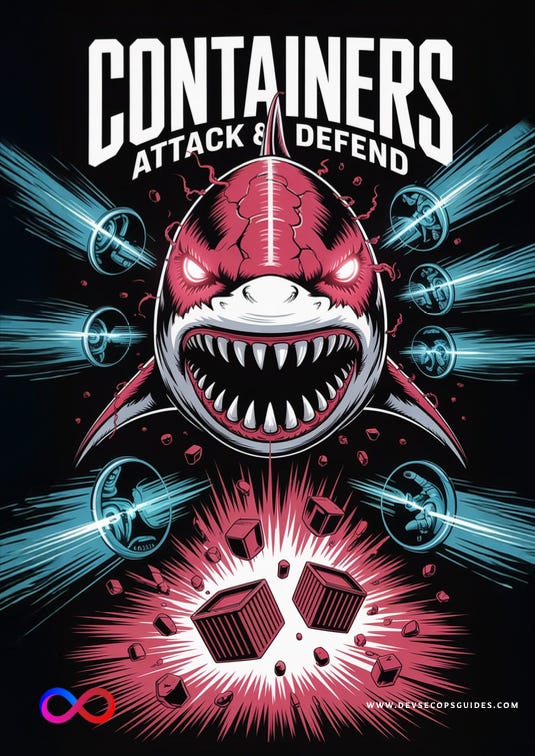Container Attack and Defend
Container Security Cheatsheet
Container Attack and Defend
Introduction: The Container Security Battlefield
Picture this: It's 3 AM, and your security operations center lights up like a Christmas tree. An attacker has just escalated privileges in your Kubernetes cluster, moving laterally through containers like a digital ghost. What started as a simple web application vulnerability has now become a full-scale container breakout, threatening your entire infrastructure.
Welcome to the modern battlefield of container security, where the stakes are measured not just in uptime and performance, but in the very survival of your digital infrastructure. In this landscape, containers are both the castle walls that protect your applications and the potential Trojan horses that could bring down your kingdom.
This comprehensive guide will transform you from a container security observer into a battle-tested warrior, equipped with both the attacker's mindset and the defender's arsenal. We'll explore the dark arts of container exploitation alongside the noble science of container defense, because in cybersecurity, you must think like your enemy to protect what matters most.
Why Container Security Matters More Than Ever
Containers have revolutionized how we build, deploy, and scale applications. They've also revolutionized how attackers approach our infrastructure. Unlike traditional virtual machines, containers share the host kernel, creating a unique attack surface where a single vulnerability can cascade across your entire environment.
Consider the statistics: According to recent security research, over 75% of organizations run vulnerable container images in production, and the average container image contains 51 known vulnerabilities. In the world of container security, ignorance isn't bliss—it's a blueprint for disaster.
Chapter 1: The Attacker's Arsenal - Container Attack Techniques
"Know your enemy and know yourself; in a hundred battles, you will never be defeated." - Sun Tzu
Understanding the Container Attack Landscape
Before we dive into specific attack techniques, it's crucial to understand the container ecosystem's attack surface. Think of containers as interconnected cities in a vast digital kingdom. Each city (container) has its own defenses, but they're all connected by highways (networks), share common resources (host kernel), and are governed by the same laws (orchestration platform).
Attackers don't just target individual containers—they target the entire ecosystem, looking for weak links in the chain that can provide them with kingdom-wide access.
Attack Vector 1: Container Image Poisoning - The Trojan Horse Strategy
Imagine you're a medieval general, and instead of laying siege to a castle, you convince the defenders to open their gates and welcome your soldiers disguised as allies. This is the essence of container image poisoning—one of the most insidious attack vectors in the container security landscape.




